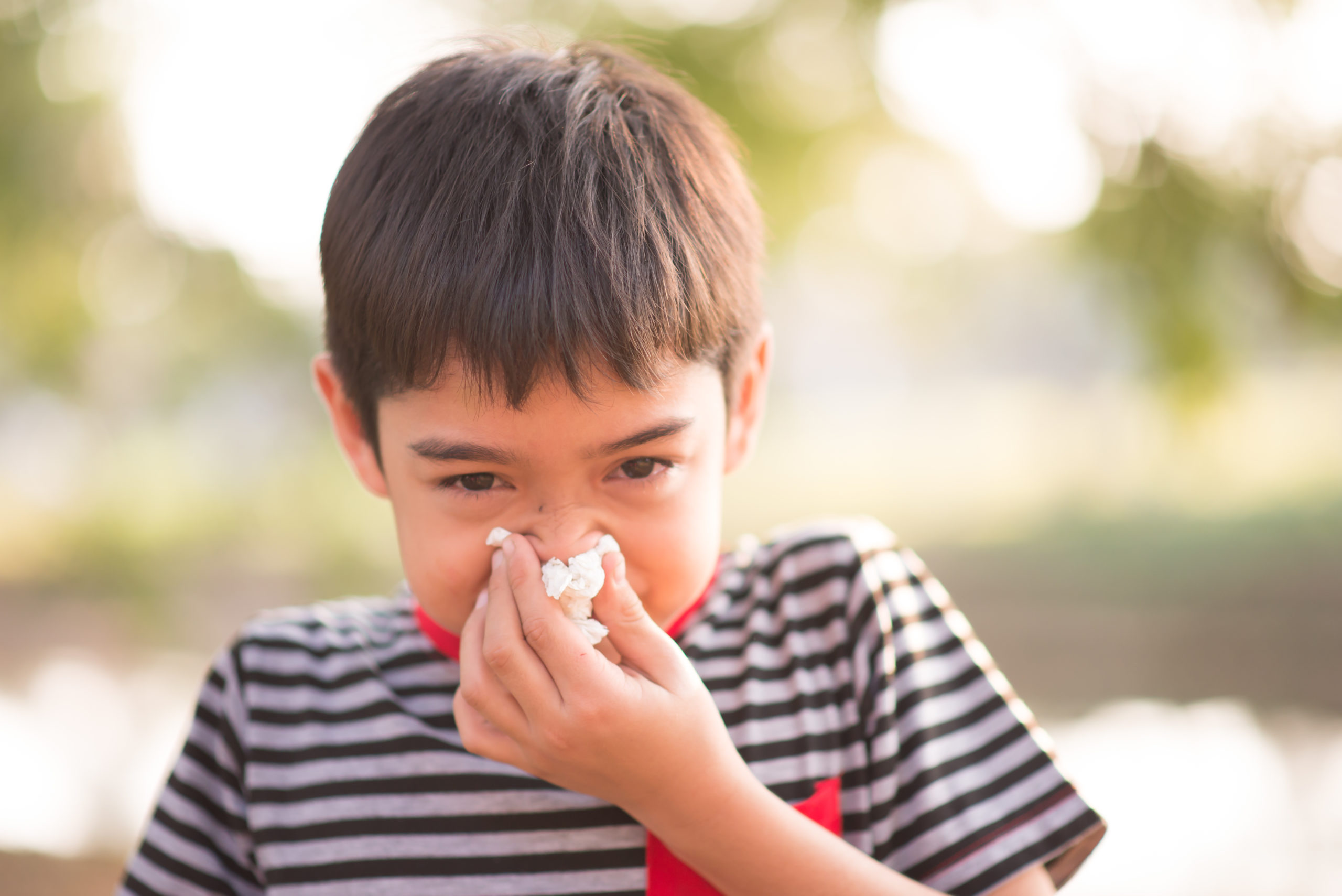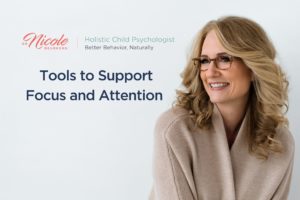Does your child struggle with allergies? Maybe they’re stuffy and congested a lot or have eczema. They might get frequent ear infections, or show severe reactions to foods.
Allergies are connected to a host of problems in children—including their mood and behavior. This begs the question, is there a link between allergies and mental health conditions? In this article, we’ll take a look at research that supports this correlation and recommendations on early stage preventative measures.
Allergies are a common child health issue. These itchy, sneezy, uncomfortable sensitivities in kids put their health at risk and interfere with their daily routines and nightly sleep. It might surprise you to learn that allergies also contribute to problems with kids’ emotional and behavioral health and development.
Is anyone making the connection?
Parents and physicians often don’t make the connection between allergies and emotional well-being in children. There’s a growing body of research that makes a strong link between the most common allergies and conditions such as depression, anxiety, ADHD and autism. When we understand the relationship between these issues, we can treat conditions more effectively. That’s one way we can minimize the harm, disruption, isolation, and developmental delays they may cause.
What’s the connection between allergies and mental health?
In recent years, we’ve seen research showing different types of sensitivities are linked to a broad spectrum of psychological issues. Respiratory allergies (including asthma and hay fever), skin allergies (such as eczema) and food allergies or sensitivities have been linked to several emotional, behavioral and developmental issues in children, including:
- Anxiety
- Depression
- Bi-polar disorder
- ADHD
- Autism
- Hyperactivity
- Conduct disorders
A new study released this year found allergies associated with a higher risk of developing a range of psychiatric conditions. Scientists in Taiwan conducted a nationwide investigation of the relationship between respiratory and skin issues and psychiatric problems. They found people with some of the most common skin or respiratory sensitivities were much more likely to develop mental problems:
Over a 15-year period, more than 10% of people with at least one allergy developed a psychiatric condition, compared to 6.7% of people without any allergies.
The autism-allergy connection
Scientists have established some strong connections between autism and allergies in children. Food, skin, and respiratory allergies all occur more frequently in children with autism. We’ve seen an increase in autism in recent decades. At the same time, several types of allergic reactions, including food sensitivities, also have been on the rise. Studies in mice have demonstrated that food allergies can trigger behaviors that are very similar to autism symptoms, including:
- Increased repetitive behaviors
- Diminished social interactions
- Problems with spatial memory
To investigate the possible connections between allergies and autism, a recent study analyzed health data of more than 200,000 children. Researchers found children with autism were significantly more likely to have food, skin and respiratory allergies than children without autism.
Among the children in the study:
- 11.25 percent of children with autism had food allergies, compared to 4.25 percent of children without autism
- 18.73 percent of children with autism had respiratory allergies, compared to 12.08 percent of children without autism
- 16.81 percent of children with autism had skin allergies, compared to 9.84 percent of children without autism
Autism and diet are intertwined, and this study confirmed that connection. But it also shows us that other allergies may also be factors in the development of autism in children.
The underlying links between allergies and mental health
One thing these studies didn’t do is tell us why allergies in children affect their behavior and emotional well-being.
One likely reason is the body’s inflammatory response to the presence of allergens. Allergies cause a significant response from the body’s immune system. That immune response creates inflammation in the body.
Studies have shown that the body’s allergic inflammatory immune response is linked to several conditions, including depression and anxiety. And research has shown connections with psychiatric disorders and other types of chronic inflammatory disease, including multiple sclerosis, rheumatoid arthritis, and irritable bowel syndrome.
Illnesses or conditions that involve immune problems and inflammation may put us at higher risk for psychological problems. Allergies are another form of an immune-related disease that can lead to excessive inflammation.
I can’t stress this enough to parents …
Introduce a variety of foods early on in your child’s life. Exposing children to a broad spectrum of foods, especially in their first year of life, may help reduce the risk of food allergies and food sensitivities. That includes allergy-prone foods such as peanuts and eggs. Talk with your child’s pediatrician about using a broad-spectrum diet to help minimize the risk of food allergies.
Maintain a healthy, anti-inflammatory diet. Focusing on whole, unprocessed foods, and limiting sugars, dyes and chemicals can help parents and children avoid the increased inflammation that comes from a typical American diet.
Get the right ratio of omega-3s and omega-6s in their diet. For children, healthy brain development and function depend on a plentiful supply of omega fatty acids. (Adults need these fatty acids, too!) The ratio of omega-3 to omega-6 is essential. Too often, a typical American diet is high in omega-6 and low in omega-3 fatty acids. This imbalance may trigger unhealthful inflammation.
Make sure to get plenty of omega-3 rich foods into your family’s diet. Excellent sources include eggs, cold-water seafood such as salmon, and walnuts. And consider an omega-3 supplement. Avoiding processed foods can help your family avoid over-consuming omega-6 fatty acids.
I’ve written about this topic quite a bit on the blog. Here are 7 Foods Rich in Omega-3 Fatty Acids – For Help with ADHD, Autism, Depression and Brain Function.
Include probiotics. We know gut health and mental health are deeply connected, via the constant communication between the gut and the brain. Probiotics for children can help maintain a healthy balance and diversity of microbial life in their gastrointestinal systems. In turn, that can benefit their emotional and behavioral lives.
Pay attention to your child’s reaction to their diet and their environment. Changes to the skin, breathing, and elimination, as well as reactions to specific foods, are possible signs of allergy. Allergies often look like a cold or flu, with runny noses, watery eyes, and coughing or sneezing. If your child shows allergic reactions, bring these to the attention of your pediatrician.
What You Should Do Next:
Sign up for my Better Behavior Naturally community newsletter
Sign up for my newsletter to get tips, resources, and supports to improve your child’s attention, anxiety, mood, and behavior…while making your job as a parent easier.
Enroll in one of my workshops
Check out one of my many workshops where you’ll join my exclusive community of parents in a one-of-a-kind virtual resource accessible 24/7. Whether you’ve got a child with a diagnosis like autism or ADHD, or are becoming more and more frustrated with a child who struggles to listen and cope, these workshops are designed to give you the information, tools, and support you need…whenever you need it.








